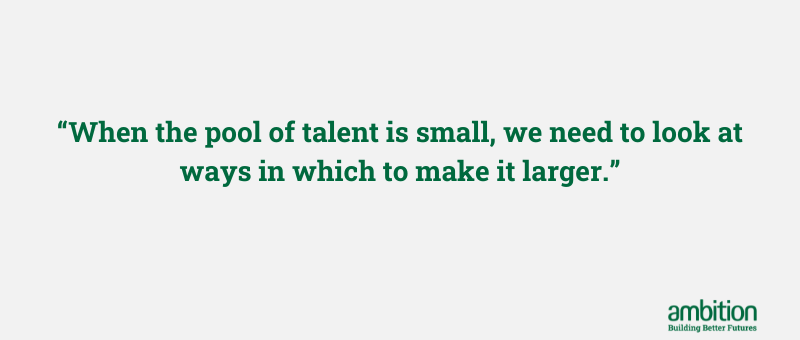Career insights with Ambition podcast
The podcast that dives deep into the defining moments of influential business leaders across technology, accounting and finance.

The podcast that dives deep into the defining moments of influential business leaders across technology, accounting and finance.

The podcast that dives deep into the defining moments of influential business leaders across technology, accounting and finance.

The podcast that dives deep into the defining moments of influential business leaders across technology, accounting and finance.


%20(1).png)
We routinely conduct market research and surveys with various groups of our clients so that we can provide information and insights that are valuable to them. One question that seemed to get an overwhelmingly similar response was a simple one “What is keeping you up at night?”. The response was Payroll and HRIS.
Payroll and HRIS affect all areas of an organisation so it’s no surprise that most people surveyed said the same thing. The cost (and loss) implications to a business can be catastrophic if the correct systems aren’t implemented from the start, and this takes the right people in the roles.
We often hear of companies in the media with payroll issues, whether that be underpayments, data integration concerns or compliance issues. So why is this an issue that seems to be cropping up more and more?
Looking at this from a technology perspective, we spoke with Owen Marquis, Senior Consultant recruiting HRIS positions, at Ambition. He states “Australia is in the top third in terms of payroll complexity in the world” which means employees are required to have a much deeper understanding of the systems involved.
He says, “The feedback from clients is that the skill set for these systems just isn’t there yet, to actually keep up with what’s happening from a payroll perspective.”
He goes on to say, “If your API framework has been architected to a good standard from the start you will have less issues with the data flowing from A to B”.
Looking at the same area from a people perspective, our Payroll SME at AccountAbility, Michael Dowds, who speaks to the top talent in Payroll across Sydney and NSW every day says, “The evolving landscape in the payroll industry is marked by the integration of complex HRIS and payroll systems”.
Michael says, “As these functions are now intimately connected through technology, it's time to focus on equitable collaboration towards a united goal - the employee experience. Time to walk a mile in each other's shoes.".
With the evolving complexities of Australian Payroll and HRIS systems finding the right people who can implement the software and the people who can run it as part of the payroll process has become a challenge.
This information has coincided with an increase in these types of hybrid data and finance roles on job boards, showing that many organisations are looking to get this right from the start.
Companies understand that having imperfect systems and the wrong people running those systems can have a backlash that nobody wants.
The search for this hybrid skill set can be likened to finding a needle in a haystack. Not only are companies searching for a skill set that is not yet abundant in the Australian market, but they are also competing for this talent with everyone else.
With this increased demand in an already small talent pool, what can be done to ensure you have the right people running the right processes, and how do you attract new talent in the market?
Interviewing and attracting talent in the first place, is a two-way street. Ensuring your processes and Employee Value Proposition (EVP) is on point, will get you ahead.
If you want to get the talent through the door first, you need to sell to them. Thinking about what is important to the potential employee and being able to articulate that through your job application and interview process is key.
From a process standpoint, the candidate experience can really impact a company’s reputation in a small talent pool. We hear time and time again from candidates who have been on second and even final stage interviews and then heard nothing, no response at all. It’s so important to provide that feedback and ensure the candidate experience is positive regardless of the outcome.
When the pool of talent is small, we need to look at ways in which to make it larger. Being able to honestly review your job description and prioritise the needs of the role will help you assess what skills are truly most important.

Armed with this information you can start to look at other options. For example, you could look at adjacent skill sets that, matched with the right attitude and culture fit, could work in your role just as well.
Speaking with an experienced recruiter will help you to build alternative strategies.
Something that often gets overlooked is the retention piece. It is good practice to regularly assess your current employees from a performance and development point of view. It is also important to have a clear exit process so you can identify any common reasons for leaving and take action where needed.
Actively working with your employees to provide ongoing opportunities for education and development can lead to higher levels of productivity, engagement and enjoyment in their roles.
Securing and retaining the best talent in the market is an ongoing process that requires employers to invest time. Speaking with your recruiter you can discuss potential strategies that will allow you to tap under-utilised pools of talent as well as having a point of contact that is working closely with the market every day.
If you are looking for more information on the above and would like to speak to an expert, you can contact them below:
Owen Marquis, Senior Consultant recruiting HRIS positions
Michael Dowds, Client Services Manager Payroll SME, AccountAbility
Article written and edited by Gemma Crolla, Digital Marketing Manager, Ambition Group Australia